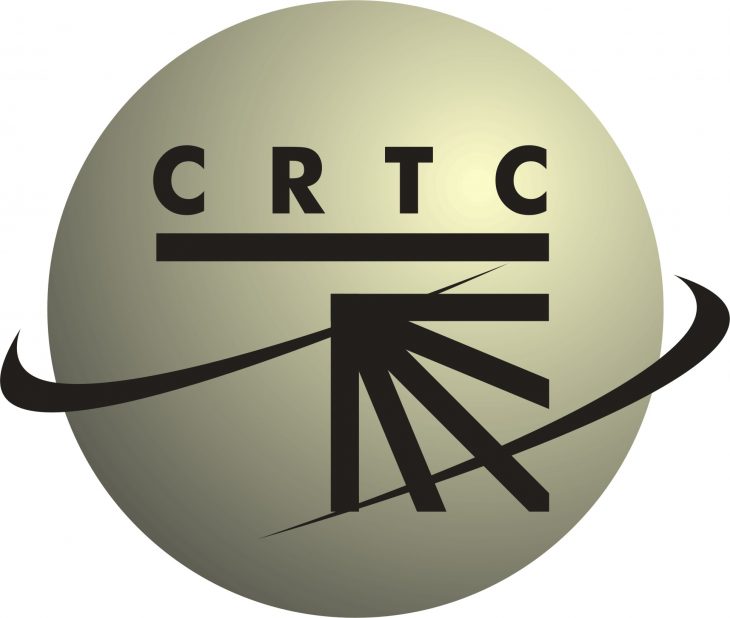
GATINEAU – It didn’t seem like that big a deal.
Tiny wanna-be Internet video distributor Leiacomm (no word if it’s named after the Princess…) complained to the CRTC claiming Bell Media was granting itself an undue preference by refusing to sell content to the independent company which wants to stream video content online, without a license, as a sort-of online BDU, instead of a subscription VOD product like many other OTT providers are. (It’s online presence is known as Picktv.net)
The Commission dismissed Leiacomm’s complaint on Monday saying the preference Bell granted itself by not dealing with Leiacomm was not undue, but the real story is the sharply-worded and cogently-argued dissent by Ontario Commissioner Raj Shoan, who pulled no punches. We’ve seen some pretty good dissents from commissioners over the years (we’re looking at you Messrs. Morin and Langford), and this lengthy polemic is a good one.
This was a non-appearing hearing, meaning it was decided upon by all commissioners based on the briefs filed.
Having read and re-read it, Shoan notes his dissent (which is many pages longer than the decision itself) could pose some new questions to the Talk TV hearing process (and, in fact, it echoes some of the ambiguities our current regulatory regime presents to new companies wanting to play in the Canadian TV pool, which the Regulator heard last week).
“On the surface of the majority decision, one is left with the impression that the Commission is taking a free market, non-interventionist approach that will benefit the online content community and Canadian consumers alike,” writes Shoan. “A deeper examination of the issues, however, reveals a result that increases regulation of online content entities to their detriment and a virtual shutting out of new Internet-only entrants to the broadcasting system through protections” offered by the CRTC’s Digital Media Exemption Order.
“(I)n my view, this decision of the Commission threatens principles fundamental to the Broadcasting Act. There are profound implications for online content distribution and online video on demand services in this decision that would best be explored by way of a comprehensive public proceeding. I hope, through this dissent, to highlight the potential pitfalls of the majority decision and spur further discussion respecting Canada’s online broadcasting system,” he continued.
“The Commission breached its duty of fairness to the complainant.” – Raj Shoan, CRTC
“From an administrative law perspective, the Commission breached its duty of fairness to the complainant by: drawing a policy distinction between Internet content distribution entities that has no basis in stated policy; and determining that the complainant is not a broadcasting distribution undertaking (BDU) in the absence of an evidentiary basis in this process.
“The Commission further erred, in my view, when determining that Bell Media’s refusal to provide content to the complainant would not have a material impact on the complainant’s proposed service. Lastly, by requiring Internet content distribution entities to subject themselves to the Telecommunications Act in order to access the undue preference/unjust discrimination provisions in the broadcasting context, I am of the view that the Commission has contravened the Act and erred in law.”
There are a number of items broken down by Shoan but a key theme to this is something Teksavvy was critical about during its appearance before the Commission during the Talk TV proceeding last week. Namely, when it comes to video distribution over the internet, be it privately managed or public, there is fuzzy policy and confusion over the application of the Telecom and/or Broadcasting Acts, evidenced by the presentation last week by the independent ISP.
“I am of the view that the Commission has contravened the Act and erred in law.” – Shoan
The Chatham-based company wants to provide BDU competition, said president Marc Gaudreault on September 16th, but is finding it difficult to see a reasonable business model. “You want more BDU competition. Canadians want more BDU competitors. Teksavvy wants to be that competition. In this way, our users can watch Canadian television without losing their relationship with us. Those are broadcast issues. When you last looked into wholesale rates for high-speed access in 2009, cable carriers argued that ‘multicasting is not an Internet service’, but rather a ‘broadcast video service that could be used by a BDU’, and was, therefore, out of scope,” he explained.
“In your 2010 decision in that proceeding, you found that Internet Protocol multicasting was out of scope because it's a functionality that high-speed Internet access does not require.
“If broadcasting-related Internet Protocol carriage is out of scope when we are talking about internet under the Telecom Act and it is out of scope when we are talking about video distribution under the Broadcasting Act, then where does it belong? The underlying costs of providing BDU competition have got to be something you can look at under the Broadcasting Act,” Gaudreault urged.
Also according to Monday’s dissent, it is incongruous to Shoan that the CRTC claims it is hands-off when it comes to new media outlets such as Leiacomm which, like Netflix, operate under the Digital Media Exemption Order, but in order for it to claim undue preference, must get a license under the Telecom or Broadcasting Acts.
“The policy distinction that the Commission makes in this decision in terms of digital media undertakings operating on the Internet is based on distinguishing between the public Internet and a private, managed network, such as that operated by a licensed IPTV undertaking,” he wrote. “This distinction has specific regulatory, operational and financial implications for online content distribution entities. In the case of the public Internet, there is no technical implication for an entity seeking to operate; it can launch at its discretion and conduct its business as an exempt broadcasting undertaking.
“The Commission is attempting, to do indirectly what it has publicly stated it will not do directly, namely, require the regulation of Internet only content entities.” – Shoan
“In order to operate a private managed network, however, an entity has two choices: it can either lay fiber or a hybrid fiber/coaxial cable system, for example, to the customer’s home and begin operating as an Internet service provider in order to gain access to a proprietary managed network or it can lease facilities from an incumbent local exchange carrier (ILEC) and operate as an internet reseller. In both circumstances, the Internet content distribution entity would be required to subject itself to the jurisdiction of the Telecommunications Act.
“This is a legally problematic position. By requiring Internet-only content distribution entities to subject themselves to the Telecommunications Act and further subject themselves to an IPTV licensing regime in order to avail themselves of the undue preference rule and gain access to the programming services of Canadian broadcasters, the Commission has contravened paragraph 9(4) of the Act and, by extension, the Digital Media Exemption Order. In other words, the majority’s decision, somewhat paradoxically, purports to require entities such as Leiacomm – for whom licensing has been deemed to be unnecessary – to subject themselves to a licensing regime in order to take advantage of a protection (i.e. the undue preference rule) that already exists in the Commission exemption order to which Leiacomm is presently subject,” he continued.
“The Commission is attempting, to do indirectly what it has publicly stated it will not do directly, namely, require the regulation of Internet only content entities.”
To read the full dissent, click here and scroll down.




